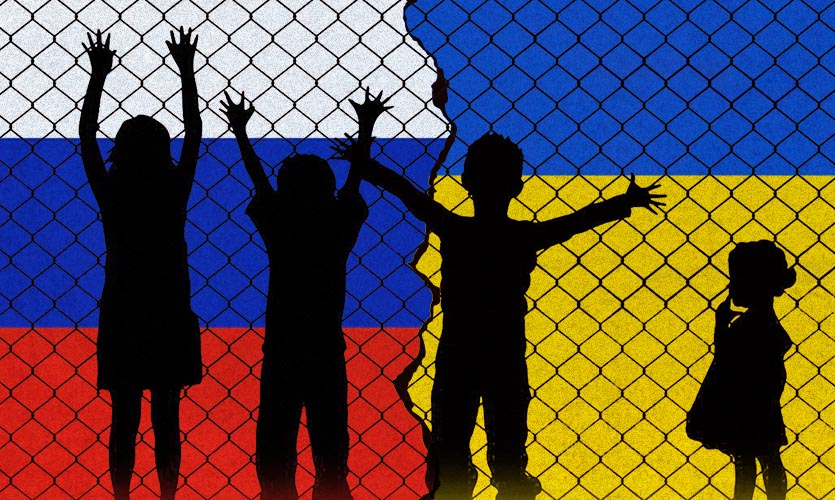Caste, as divisive and polarising as it sounds, has been a part of our society for thousands of decades. What started as a means to allot occupation and status in society turned into a social evil and an opportunity for the upper caste to climb the ladder to riches.
In a contentious move, Seattle became the first US city to criminalise caste discrimination. What does it mean for India?
Kshama Sawant, an upper-caste Hindu and member of the Seattle City Council, proposed the motion, which the council adopted by a vote of six to one. In essence, the law will recognise caste as a distinct basis of discrimination, like race or gender.
As surprising as it sounds for an American city to recognise something that has been inherently Indian, it is notable to acknowledge the worldwide recognition of caste discrimination.
Caste Pervades Borders
This action has set a precedent for other communities to enact such measures in the future. In the US, college campuses have already adopted similar rules. In its anti-discrimination policy, Brandeis University in the Boston area became the first college in the US to mention caste in December 2019. Ever since, the University of California, Davis, Colby College, Brown University, and the California State University System have all followed suit. Following the terms of its agreement with the graduate student union, Harvard University implemented caste protections for student workers in 2021.
Although caste discrimination was banned in India over 70 years ago, bias still exists, as shown by several recent studies, including one that discovered lower caste individuals were underrepresented in higher-paying positions. Although untouchability is illegal in India, Dalits continue to experience pervasive harassment, and their attempts to advance socially have occasionally been violently slammed.
While proposing the bill to ban caste-based discrimination in Seattle, Sawant underscored, “Caste discrimination doesn’t only take place in other countries. It is faced by South Asian American and other immigrant working people in their workplaces, including in the tech sector, in Seattle and cities around the country.”
This resolution, however, could go down swinging given how it has also polarised the Indian-American community. Community tensions were evident in Seattle City Hall on Tuesday, according to AP. The council vote was referred to as “a culture war that has been won” by Thenmozhi Soundararajan, executive director of the organisation Equality Labs, whose advocacy was vital to the adoption of this resolution.
Hindu organisations in the US have largely opposed the resolution because they believe it will only encourage more “anti-Hindu bigotry”. Council Member Sara Nelson, the lone dissident, highlighted some of these reservations. This, she said, may lead to increased anti-Hindu prejudice and deter firms from hiring South Asians.
According to reports, the Coalition of Hindus of North America (CoHNA) gathered over 100 signatures opposed to the plan, including those from Dalit Bahujan-led organisations in the US and the Vishwa Hindu Parishad. The CoHNA claims it wants to dissolve ‘caste’ consciousness, the colonial cliché that has dominated discussions on Hinduism and India. South Asians across the US are protesting the resolution that they see as a measure that could unnecessarily single out an already oppressed community.
The number of the Indian diaspora that has flocked to the United States has been increasing at an unstaggering rate. On top of that, the pandemic brought caste into the US newspapers and introduced US citizens to the alien concept of caste discrimination.
Is Banning Untouchability The Answer?
It all comes down to the question of whether such strides in tackling caste-based bias can also improve the conditions of South Asians living in their nation.
Caste discrimination has been recognised as a form of racial discrimination that is prohibited by the International Convention for the Elimination of All Forms of Racial Discrimination since 1996, by the UN committee on the elimination of racial discrimination, and since 2000 as a form of discrimination that is prohibited by international human rights law. Indian Dalits have advocated for indigenous peoples’ rights and minorities’ rights in front of international bodies.
The Dalit community enjoys a constitutional status, and legal protections in the form of affirmative action provisions that are separate from those for groups classified as minorities, despite the fact that they do not easily meet the internationally agreed-upon criteria for minorities or the indigenous community.
But that’s what caste looks like in India only on paper. The ground reality may be much harsher.
Even the well-off find the police and other law enforcement agencies intimidating, and those who are poor, uneducated, marginalised, stigmatised, or lack powerful connections encounter numerous difficulties that seem almost insurmountable. Adivasis and Dalits share all of these drawbacks and more. In addition, because the offences covered under PoA are specifically caste-based hate crimes, victims frequently fail to disclose them out of fear of retaliation or to avoid the additional humiliation that would usually come with having their complaints investigated.
Clearly, banning untouchability cannot solve the age old issue. Seattle’s resolution against the social evil serves as a helping hand to South Asians and protects their rights even in a foreign land. The Indian Parliament could definitely reflect on its existing laws in contrast to Seattle’s and come up with a dynamic framework for the upliftment of the lower castes, ensuring equal opportunities.
Underneath the pretence of caste anonymity and meritocracy in urban India and across the globe, caste discrimination grapples with the best of nations and manifests itself in all of these spheres through residential segregation, discrimination in the labour market, educational disparities, and untouchability.
Cases like the Hathras gangrape are a shameful reminder that despite years of abolishment of untouchability, it continues to exist and oppress the minorities. Stricter regulation and the legal and social upliftment of the minorities are the need of the hour. In the light of such a step taken by Seattle, nations worldwide ought to collaborate to protect the rights of the communities facing caste based discrimination.
Read more: Could Artificial Intelligence Spell Doom For Journalism?









